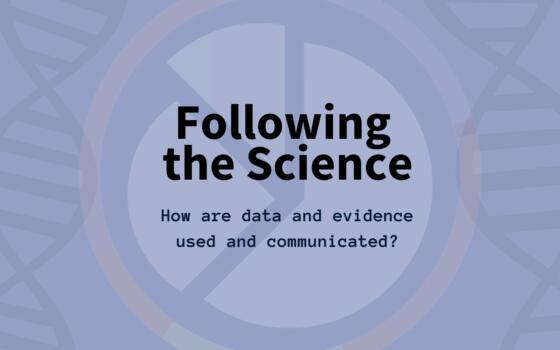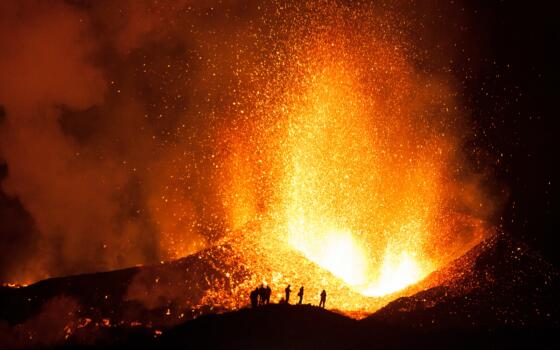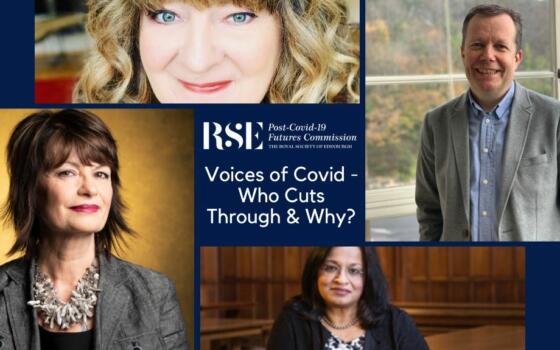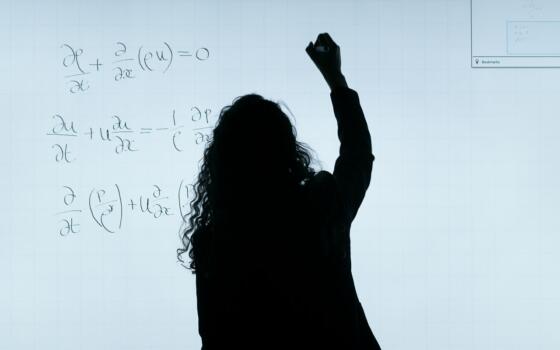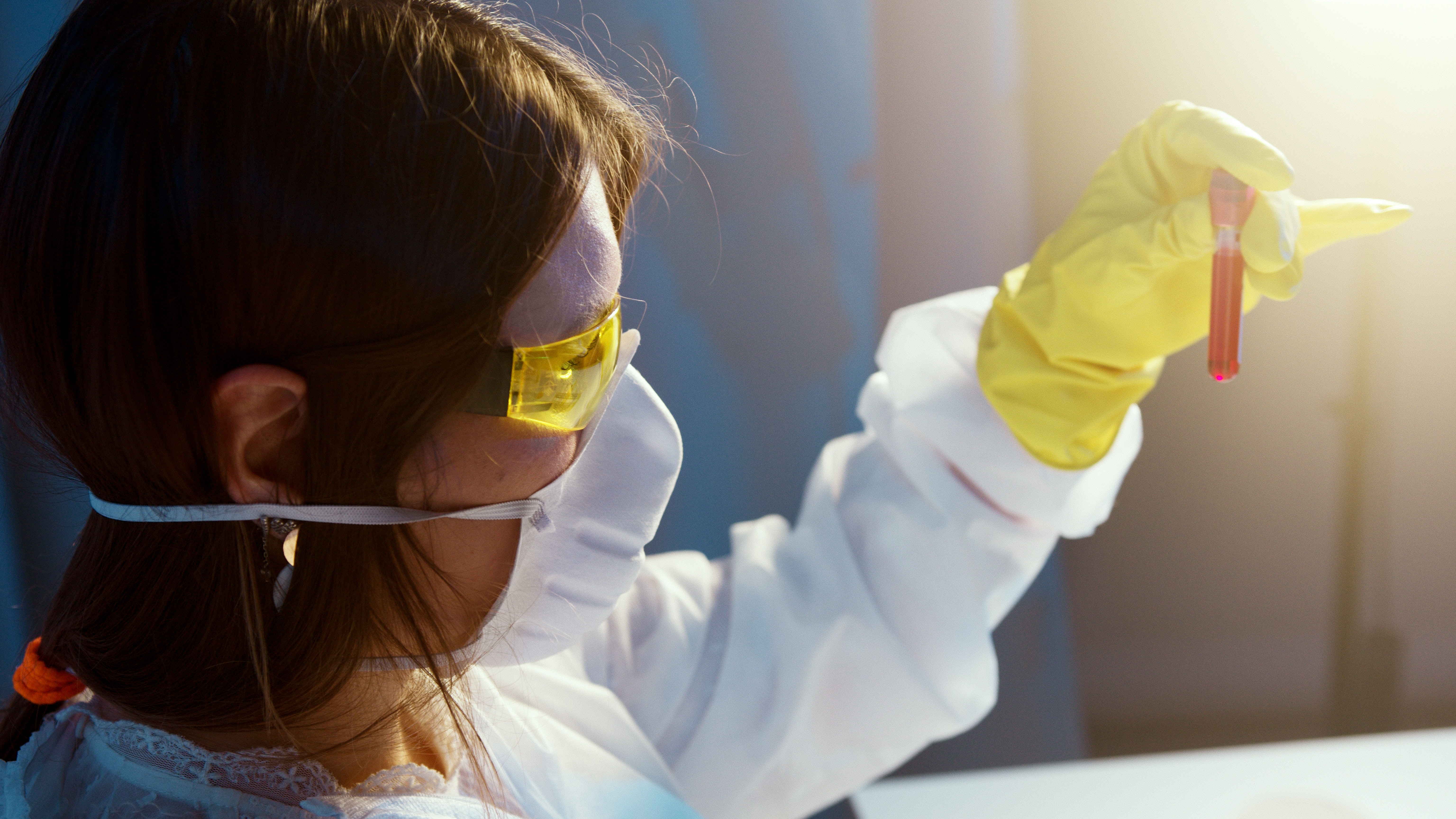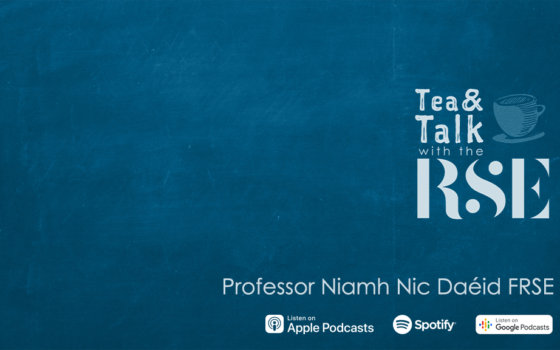Coronavirus and the news
The Covid-19 pandemic has forced scientific data and evidence to the centre of public attention. As we make our daily risk-assessments, understanding what’s being reported and discussed in the public domain is of key importance. But how well have the media actually performed during the greatest public health crisis since the flu pandemic of a century ago? And what challenges are being faced by scientific experts in their regular dealings with media? As part of the Data, Evidence and Science working group’s investigations, we discussed these issues at a virtual RSE workshop, held on 19 March 2021.
We wanted frank discussion. So the conversation – steered by James Naughtie FRSE – was held under the Chatham House Rule: those who spoke are not identified or quoted here. Our attendees were frontline journalists reporting the pandemic, scientific experts handling regular media exposure, and specialist intermediaries whose job it is to make scientific knowledge accessible.
No escaping politics
The present public health crisis means that government competence is daily in question. In Scotland, the question of independence looms particularly large. This adds a distinctive twist to comparison of governments’ performance north and south of the border.
Because we’re in a civil emergency that’s regulated by the use of exceptional legal measures, some journalists thought that the ‘wartime’ atmosphere was having a chilling effect. They worried about their ability to pose tough questions to the UK’s different governments. Others thought that the UK’s nationalistic atmosphere had narrowed the agenda. We had not learned from successful pandemic management in countries such as Australia, South Korea and New Zealand. Moreover, during an emergency questioning the NHS’s shortcomings was largely taboo.
Our discussion took place well after the UK’s vaccination programme had begun to make a serious impact. Journalists wanted to focus on the early stages in the crisis, when weak border controls and the scandal over care-home deaths were hard to pursue effectively. The under-performance of the test-and-trace system was also discussed. These, it was felt, had all set the stage.
Getting trained to communicate
For non-specialist journalists, understanding data and scientific evidence was a particular challenge. It was widely agreed that more training was needed. Science intermediaries, though, argued that despite shortcomings, the UK was exceptionally well-endowed with competent science and health reporting of unusual range and depth. And journalists, they found, were open to advice. Indeed, reportedly an upsurge in science and data self-education was underway in newsrooms.
However, more formal media training was needed to assist scientists as an antidote to flight from the public gaze. Some scientists had withdrawn from the public domain because the use of data and evidence has been so highly politicised. Other experts, however, had gone well beyond their professional knowledge, claiming expertise where they did not have it, which was regarded as unhelpful.
Media-savvy expertise
The sheer speed with which new research findings have emerged since the pandemic struck was seen as a major challenge – not least by those experts called on by the media. For scientists facing time-pressures to opine, pre-prints pose a problem. How much weight should be attached to findings not yet peer-reviewed?
The big challenge, all agreed, was dealing with risk and uncertainty when most people just want ‘the facts’ and politicians claim they are ‘guided by the science’, as though this were a unitary and uncontested body of knowledge. There’s a continual temptation, too, for experts to say more than is wise, when they really need to stick to what they know. Aside from walking that tightrope, both journalists and experts face the hazard of being trolled online and otherwise threatened. These perils are little appreciated by the public.
What did we learn?
Our discussion was consensual. Yet despite the Chatham House Rule, caution prevailed. To really build momentum, and for those involved to gain confidence as partners in dialogue, more such events are needed. And the RSE is keen to foster this ambition.
In November, during COP26 in Glasgow, similar questions about how to assess evidence and data concerning the climate emergency will arise, this time during a highly politicised global media event. Looking to the longer term, an ambitious programme of training in the mediation of science both for journalists and scientific experts is needed.
The debate on media and expertise must also go beyond mainstream media to address the role of social media. Future analysis also needs to address the diverse conditions that shape public trust in government and expertise. Trust must be earned – and it is easily lost.
You can watch a visual exploration of the discussion’s themes, captured in real-time by a Live Illustrator, and accompanied by a voiceover from Professor Philip Schlesinger FRSE via the video above. To access full English subtitles, simply click the ‘CC’ icon.
Further reading
- Reporting lessons for journalists from the first year of Covid-19; data and science in the news (Bournemouth University)
- The UK COVID-19 news and information project (Reuters Insitute/University of Oxford)
- Media, communications and COVID-19: What are experts concerned about? (UK Parliament)
- Communicating statistics through the media in the time of COVID-19 (LSE Impact Blog)
The author
Philip Schlesinger FRSE is Professor in Cultural Theory at the University of Glasgow and Visiting Professor of Media and Communications at the LSE. He is currently researching the regulation of internet platforms. Email: Philip.Schlesinger@glasgow.ac.uk. Twitter: @PRSchlesinger1
Live Illustration
The illustrations documenting the workshop were produced by Live Illustration, a virtual graphic recording agency.
